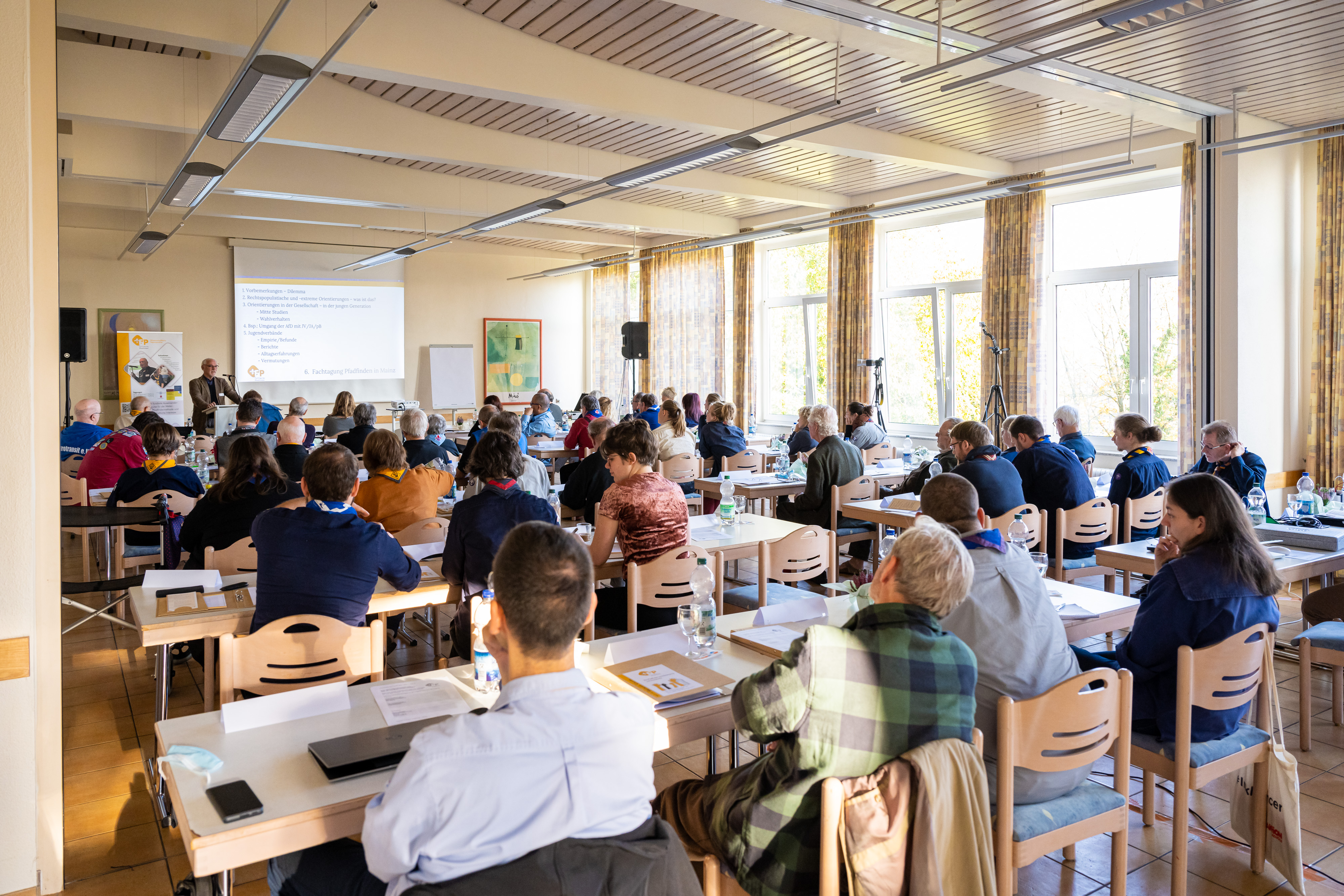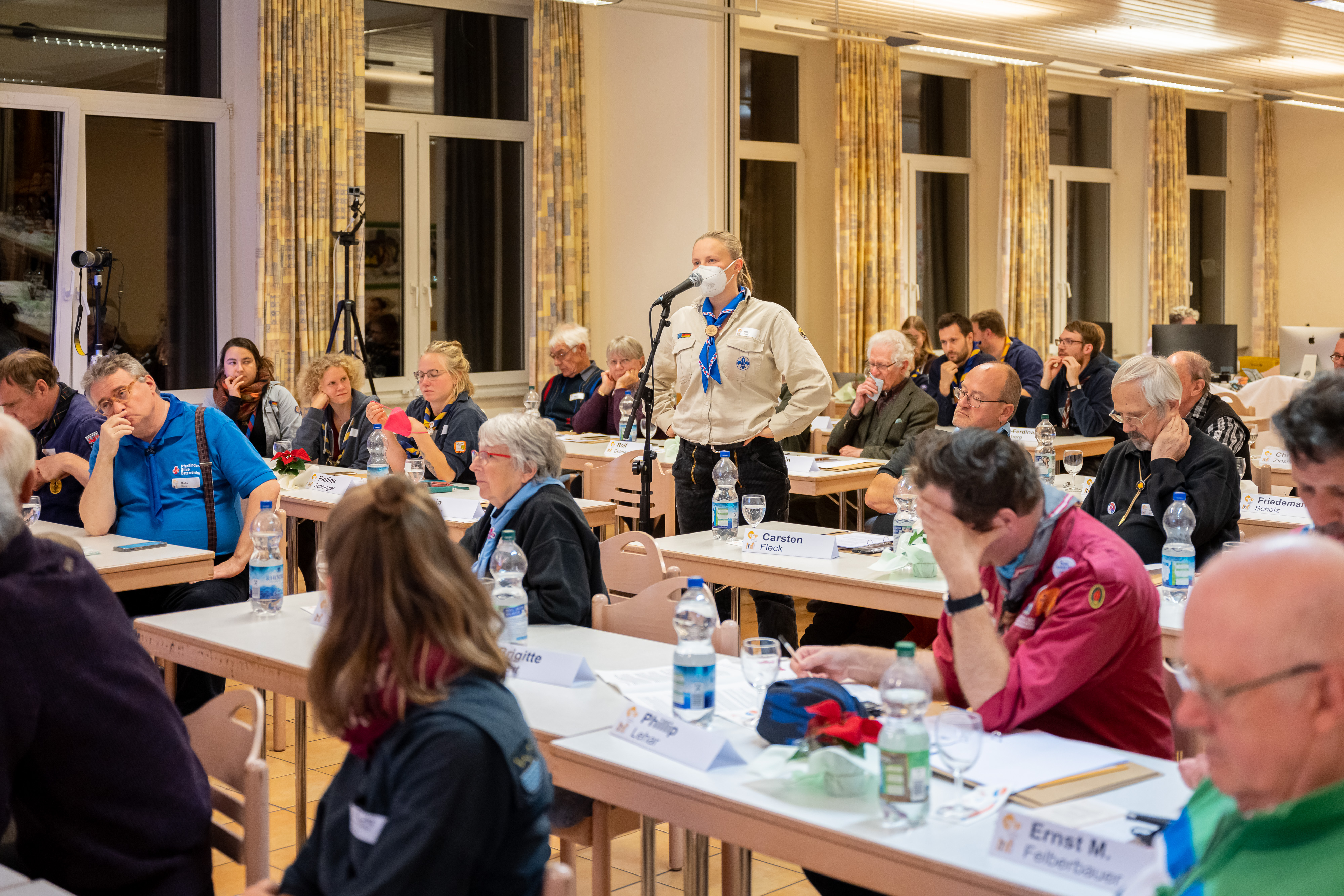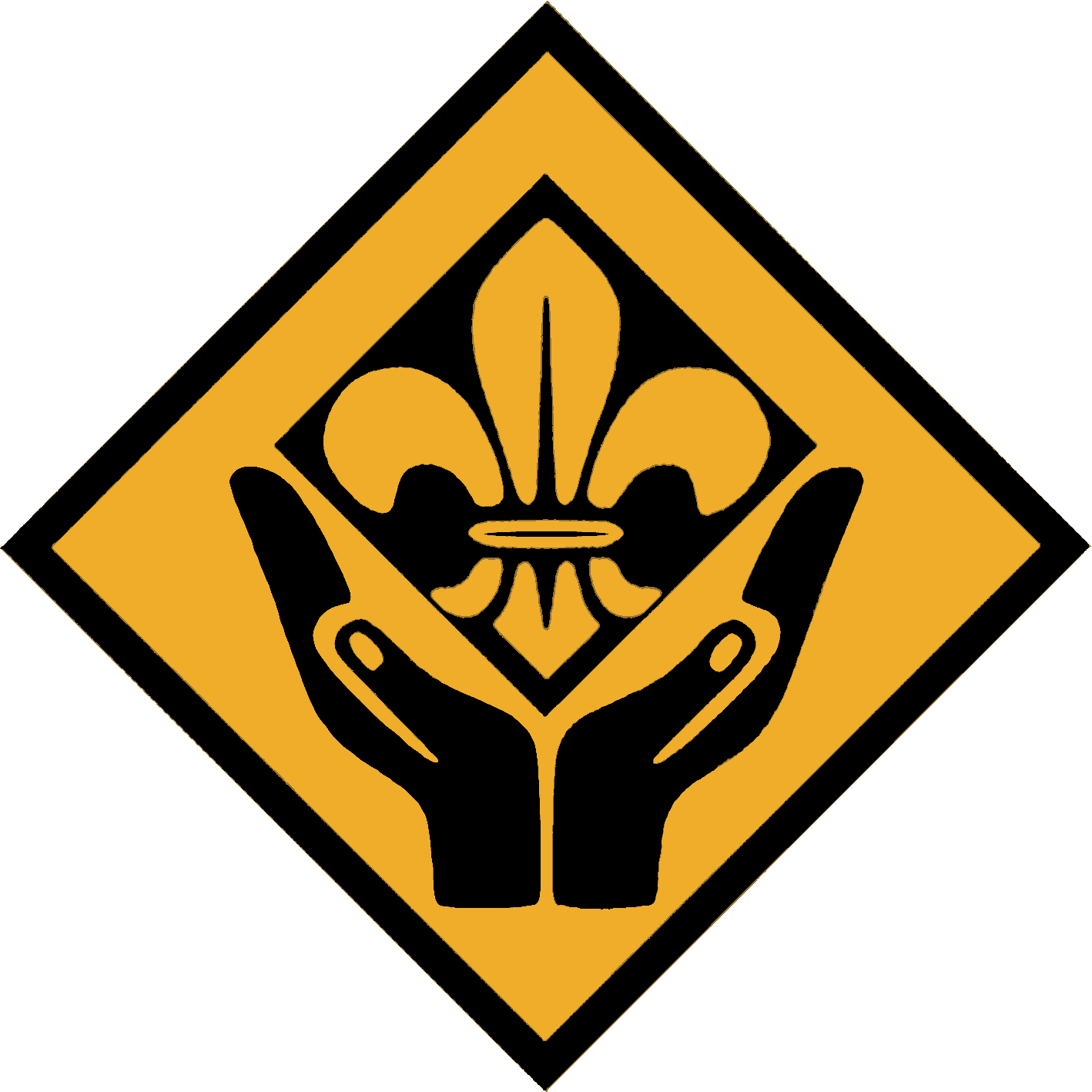Colonialism and Scouting: Origins, Continuities, and Disruptions
Fachtagung Pfadfinden (Scouting Symposium), 4–6 April 2025
From 4 to 6 April 2025, the seventh Fachtagung Pfadfinden (hereafter: Scouting Symposium), will take place at Ludwigstein castle near Witzenhausen. The participants will discuss the colonialist past of Scouting and the reflection on its continued impact on current work. In addition, the organizing team also wants to offer young scholars the opportunity to present current research projects on other topics related to the Scouting movement.

The Focus of the 2025 Scouting Symposium
The 2025 symposium will treat the colonialist beginnings of the Scout movement: When the British General Robert Baden-Powell organized the first Scout camp on Brownsea Island in 1907, his pedagogical ideas were clearly embedded in the context of contemporary British colonialism. Scouts were at that time still an exclusively male youth organization and intended to provide competent, responsible, and morally educated staff for the British Empire. Under the impact of the catastrophe of the First World War, Baden-Powell reconceived the idea of Scouting as a peace movement: As a worldwide movement, Scouts from all nations were to become familiar with each other through joint events and this mutual understanding was intended to help prevent future wars. This tension between colonialism and the ideal of friendship between all Scouts will be critically reflected upon with a heightened sensitivity as to how and to what extent the phenomena of racist discrimination and structural racism inherent in colonialism continue to have an impact on Scouting.
We therefore invite you to submit abstracts for contributions on the links between the Scout Movement and colonialism in its founding period and beyond. General aspects that could be reflected within the framework of the Scouting Symposium are: Continuities with colonialist traditions, disruptions caused either by external pressure or as deliberate transformation from within, perspectives on dealing with the colonialist past in Scout organizations past and present, dealing with racism and neo-colonialism in the Scout Movement today and analyses on the work of the Scouts in colonial and post-colonial societies, especially in the former German colonies. More specific, we welcome contributions that deal with the topics and questions such as:
- Scouting in the colonies: What was the relationship between the Scout organizations in the colonies and the colonial powers? Who defined their target groups? How and to what effect did they organize their educational activities? To what extent were scouts and anti-colonial resistance movements linked? In which ways did local traditions and European-influenced concepts influence each other?
- Scouting during and after decolonization: What roles did scout organizations play during decolonization? What was the relationship between Scouting as a movement of the colonial powers and the post-colonial elites? Did target groups and pedagogical concepts change during decolonization?
- European Scouting and colonialism: What significance did colonialist endeavors have in German Scouting during the German Empire, the Weimar Republic and the early Federal Republic of Germany? How did relations between European Scout associations and their colonial counterparts develop? To what extent was or is there a debate about the colonialist origins of the Scout movement? How did German Scouting deal with the colonialist influence of the founders, in particular Robert Baden-Powell, Alexander Lion, and Maximilian Bayer?
- Racism and anti-racism in European Scouting: To what extent did colonialist educational concepts and symbols survive in Scouting, e.g., in rituals, songs, games, and other activities? To what extent is racism still prevalent in Scouting today, despite (or alongside) the ideal of an international community? Which concepts help to counter discrimination and racism, how should they implemented and what effect do they have?
- Comparative perspectives of other youth movements: Were other youth organizations in the 19th and 20th centuries also colonialist in character and if so, in which way? How did decolonization affect these organizations and how did they deal with their colonialist past? How did youth movements that were not organized in associations deal with colonialism?
- Impulses from other fields of research: To what extent can decolonization processes in other contexts be an example or model for scout associations? Can the handling of the colonialist past in the Scout Movement be fruitfully analyzed from the perspective of German culture of remembrance?

Young Scholars Panel
For academics in the early stages of their career whose research is related to the Scouting movement but not to the conference theme, there will be a separate forum for the first time at the Scouting 2025 conference to present and discuss their current projects. The presentations should be designed as posters and presented in a “gallery walk”. A selected number of contributors will also be given the opportunity to present their research project to the participants in a short presentation on a panel.
About the Scouting Symposium
Since 2010, the Scouting Symposium strives to enable and empower scholarly research on the German Scout Movement, in particular its pedagogical foundations, history, and the practices of its associations and groups. Pursuing an interdisciplinary approach, this conference offers academics a forum to present research findings on these topics and to discuss them with both an academic audience and active scouts. So far, six symposium proceedings with selected contributions have been published.
We would like to invite you to offer contributions in the form of presentations (30 minutes) followed by a discussion for the Scouting Symposium 2025. While we particularly call on historians, political scientists and educationalists to apply with an abstract, relevant contributions from other disciplines will be considered as well. The abstract should not exceed 300 words. Kindly submit your abstract by 30 September 2024 to the organizing team via
Conference venue
Jugendburg Ludwigstein, 37214 Witzenhausen, Germany. Ludwigstein castle also holds the Archive of the German Youth Movement, the most extensive collection on scouting and related youth movements in Germany.
Contact the Organizing Team
Dr. Dirk Kuhlmann (Sinology and History, independent scholar, editor, Institute Monumenta Serica)
Christina Hunger, M.A. mult. (History and Political Science, Adult Education, Systemic Coach, Berlin)
Max Zeterberg, M.A. (History and Educational Science, doctoral candidate, University of Kassel, research assistant in General and Historical Educational Science, Georg-August-University Göttingen)
Email:
Further information (in German) https://pfadfinder-fachtagung.de/

